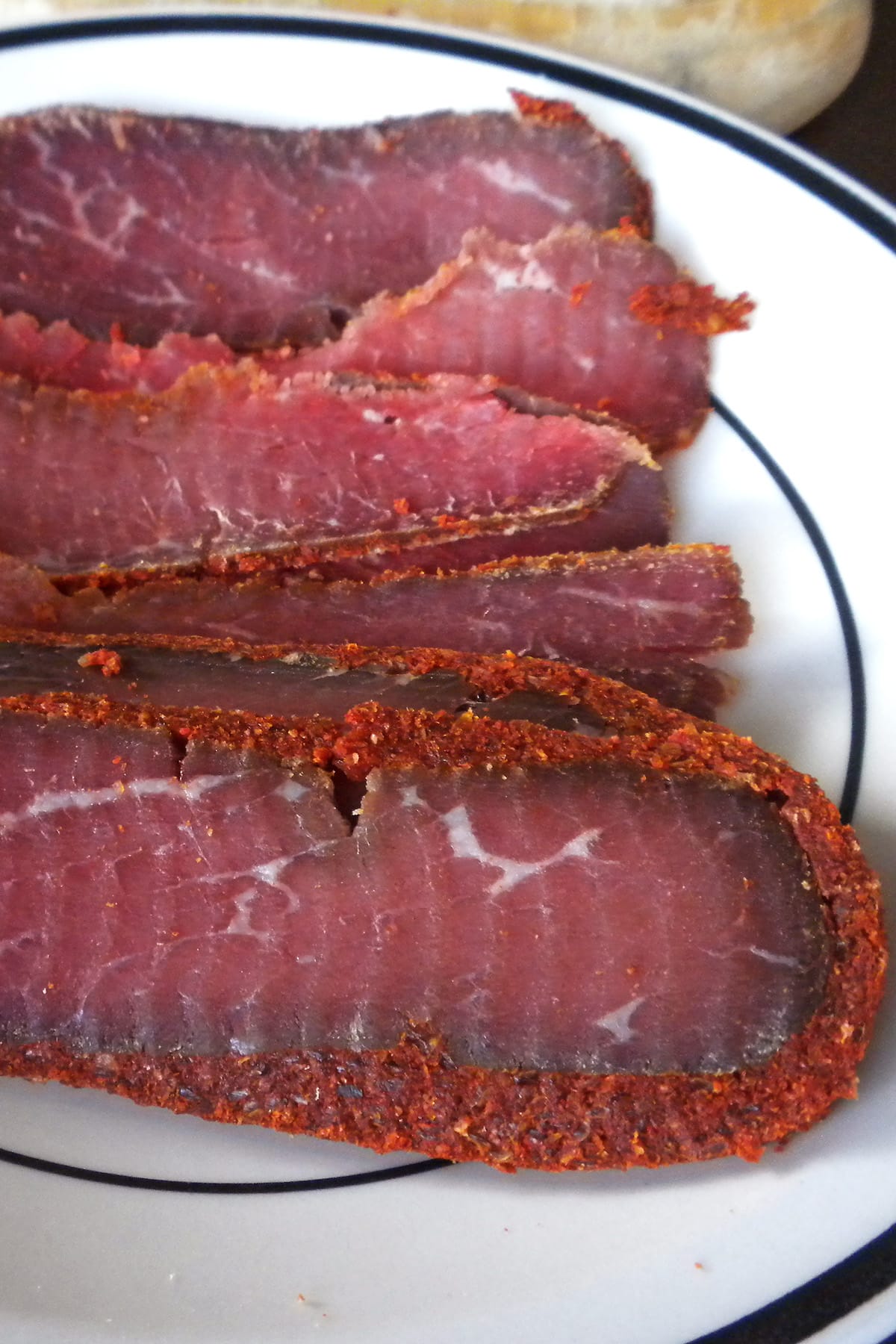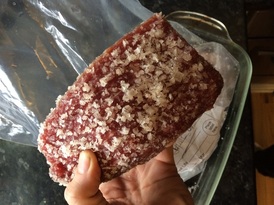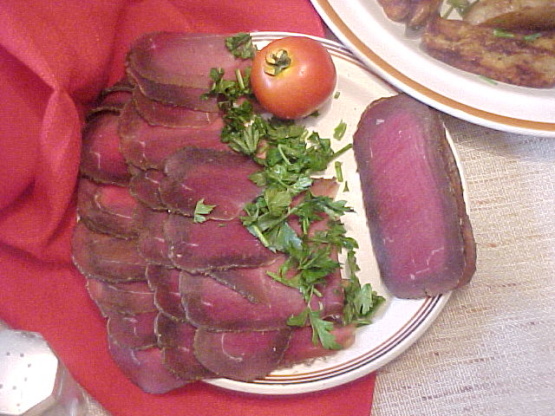Pasterma
basturma, basterma, bastirma, pastirma, pastourma
Pastirma or Pasterma, also called pastarma, pastırma, pastrma, pastourma, basdirma, basterma, basturma, or aboukh is a highly seasoned, air-dried cured beef that is found in the cuisines of Albania, Armenia, Azerbaijan, Bosnia and Herzegovina, Romania, Bulgaria, Egypt, Kurdish region, Greece, Cyprus, Iraq, the Levant, North Macedonia, Turkey and Georgia. Basturma existed in ancient Armenian cuisine, where it was known as aboukh' .[full citation needed] The word abookhd (Classical Armenian apukht) was already used in the Armenian translation of the Bible, in the fifth century AD, meaning “salted and dried meat”. Pastırma is mentioned in Mahmud of Kashgar's Diwan Lughat al-Turk and Evliya Çelebi's Seyahatname.[better source needed] According to Turkish scholar Biron Kiliç, the term is derived from the Turkic noun bastırma, which means "pressing".[better source needed] The Oxford Encyclopedia of Food and Drink writes that pastırma is the word the Ottomans used for a type of Byzantine cured beef that was called paston (παστόν). According to Johannes Koder, an expert in Byzantine studies, paston could mean either salted meat or salted fish, while akropaston (ἀκρόπαστον) means salted meat. Andrew Dalby gives the definition of paston as "salted fish" and akropaston apakin as "well-salted fillet steak". Gregory Nagy gives the definition of akropaston as "smoked", describing apakin as "a kind of salami sausage, probably similar to pastourma". The Oxford Companion for Food says that a Byzantine dried meat delicacy was "a forerunner of the pastirma of modern Turkey".
Source: Wikipedia




